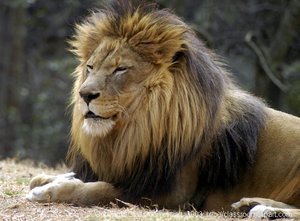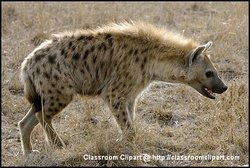Carnivores
|
|
Carnivores are animals that eat a diet consisting only of meat.
Also, the word could refer to the mammals of the Order Carnivora, many (but not all) of which fit the first definition. Bears are an example of members of Carnivora that are not true carnivores. Carnivores that eat primarily (or only) insects are called insectivores.
Animals that are true carnivores
A true carnivore is an animal that subsists primarily on a diet consisting only of meat. They may consume other products presented to them, especially animal products like cheese and bone marrow, or sweet sugary substances like honey and syrup, but do not need to consume these on a regular basis. True carnivores lack the physiology required for the digestion of vegetable matter.
Domesticated carnivores are often recommended to have vegetable supplements (or such containing processed pet foods) as meats designed for human consumption may be lacking in vital nutrients.
- Cats (not only including domestic cats but also including lions, tigers, and other members of the cat family.)
- Dogs (again not only domestic dogs, though it is debated whether they are carnivores or omnivores, but wild dogs such as coyotes and wolves etc.)
- Hyenas and other scavengers
- Weasels
- Some skunks
- Polar Bears
- Birds of prey, including hawks, eagles, falcons and owls
- Scavenger birds, like vultures
- Several species of waterfowl including gulls, penguins, pelicans and storks
- Frogs
- Snakes
- Crocodilians
- Sharks and many other species of fish
- Toothed whales
- Octopuses and squid
- Spiders
- Mantophasmatodea, Reduviidae and other insects
There are also several species of carnivorous plants, though most are primarily insectivorous, some digest nematodes and other small invertebrates.
Many dinosaurs and other extinct animals were carnivores, for example the well known Tyrannosaurus rex and sabretooth tiger.


